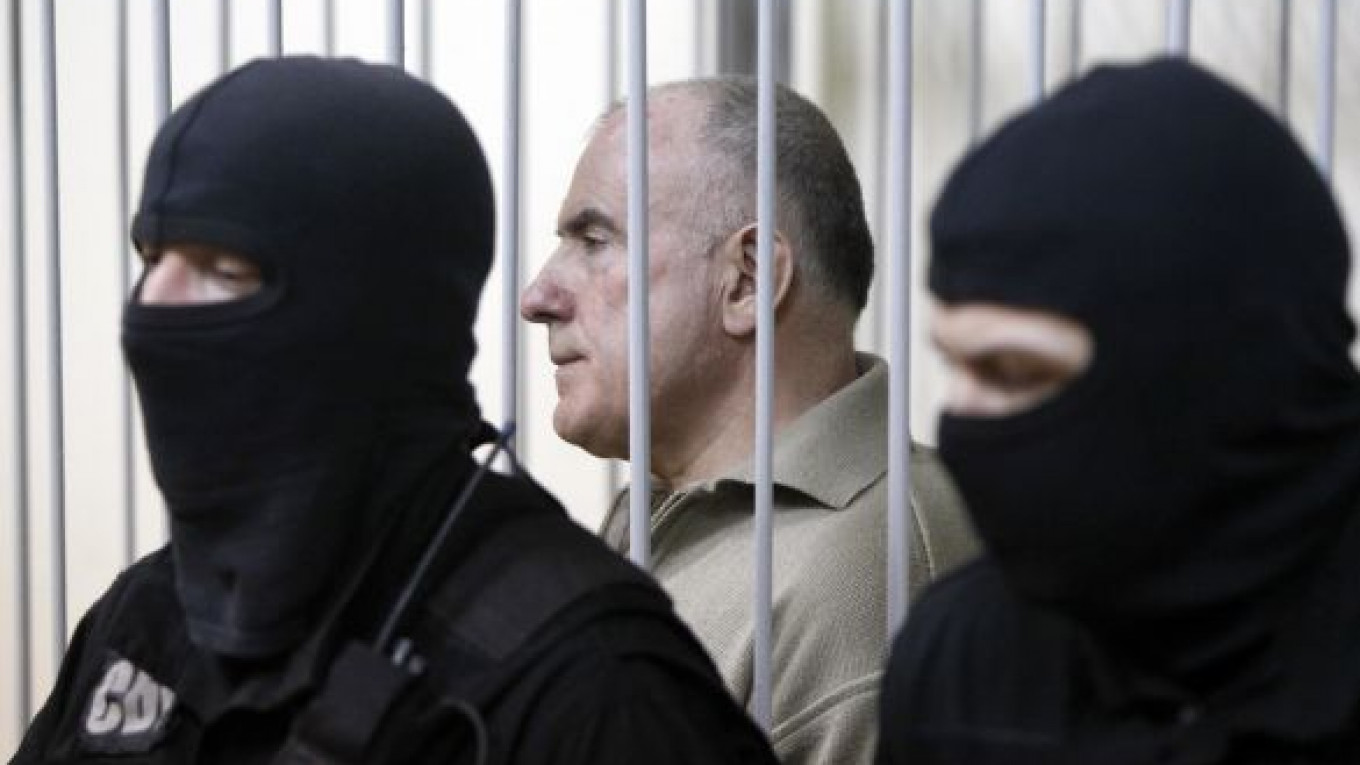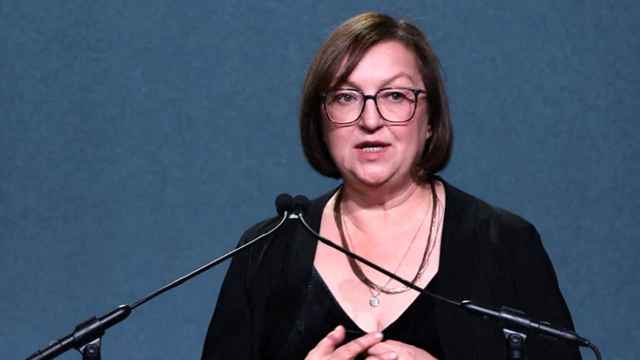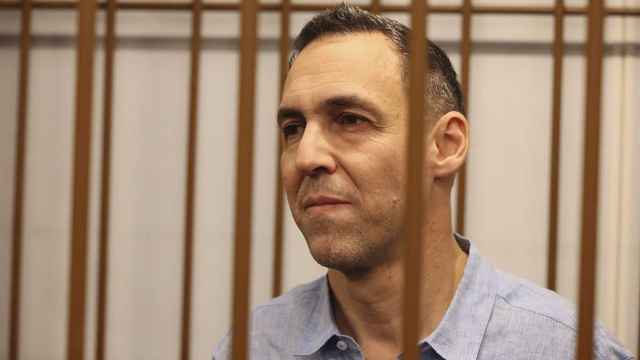KIEV — A former police commander in Ukraine was convicted of strangling an investigative journalist and sentenced to life in prison Tuesday, but the court failed to determine who ordered the killing, which has marred the country’s image.
Heorhiy Gongadze, co-founder of a news website that exposed high-level corruption, was kidnapped in September 2000. His decapitated body was found in a forest outside Kiev several months later.
On Tuesday, the Pechersk District Court in Kiev convicted Olexiy Pukach, the former chief of the Ukrainian Interior Ministry’s surveillance department, of the murder. Three other police officers have been convicted and sentenced in the case.
Gongadze’s widow, Myroslava, who received political asylum in the United States with her two daughters, blames then-President Leonid Kuchma for her husband’s death. Her lawyer, Valentyna Telychenko, said she would appeal Tuesday’s verdict, as the court had failed to determine who ordered the killing.
Asked by reporters to comment on the verdict, Pukach suggested that they ask Kuchma and his former chief of staff, Volodymyr Lytvyn.
“I have told everything during the interrogation and the trial, so ask Lytvyn and Kuchma about their motives and intentions,” Pukach said before the guards took him away. His trial was held behind closed doors, and the public was allowed only to hear the verdict.
Kuchma, the mentor of incumbent Viktor Yanukovych, was accused of involvement in Gongadze’s murder based on audio recordings secretly made in his office in which he allegedly discussed a plot against the journalist. Kuchma has denied the accusations.
Prosecutors opened an investigation of Kuchma in 2011, but a court dropped the charges against him later that year.
In September 2000, Gongadze got into what he thought was a taxi and was joined by three other men.
He was driven outside Kiev, where Pukach and his accomplices took off the journalist’s shoes and jacket, bound his hands and feet and put him beside a pit they had dug.
The court said Gongadze was pleading for his life, but Pukach strangled him, first with his hands and then with a belt. Gongadze’s body was then doused with gasoline and burned.
Pukach later returned to the scene to decapitate the corpse.
Gongadze’s murder triggered months of protests against Kuchma, which served as a precursor to the 2004 Orange Revolution that overthrew Yanukovych’s fraud-tainted victory in the presidential vote.
Pro-Western President Viktor Yushchenko, who succeeded Kuchma, pledged to find the truth about Gongadze’s killing, but the probe dragged on for years without determining the mastermind.
In 2005, Kuchma’s interior minister, Yuri Kravchenko, who was accused of organizing the killing, died of two gunshots to the head in what officials called suicide just hours before he was to testify in the case.
Related articles:
A Message from The Moscow Times:
Dear readers,
We are facing unprecedented challenges. Russia's Prosecutor General's Office has designated The Moscow Times as an "undesirable" organization, criminalizing our work and putting our staff at risk of prosecution. This follows our earlier unjust labeling as a "foreign agent."
These actions are direct attempts to silence independent journalism in Russia. The authorities claim our work "discredits the decisions of the Russian leadership." We see things differently: we strive to provide accurate, unbiased reporting on Russia.
We, the journalists of The Moscow Times, refuse to be silenced. But to continue our work, we need your help.
Your support, no matter how small, makes a world of difference. If you can, please support us monthly starting from just $2. It's quick to set up, and every contribution makes a significant impact.
By supporting The Moscow Times, you're defending open, independent journalism in the face of repression. Thank you for standing with us.
Remind me later.






